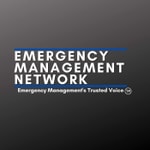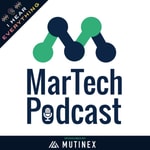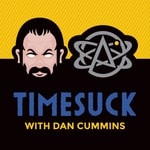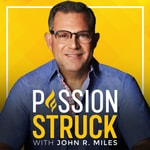The Emergency Management Network Podcast – Details, episodes & analysis
Podcast details
Technical and general information from the podcast's RSS feed.

The Emergency Management Network Podcast
Todd T. De Voe
Frequency: 1 episode/7d. Total Eps: 242

emnetwork.substack.com
Recent rankings
Latest chart positions across Apple Podcasts and Spotify rankings.
Apple Podcasts
🇨🇦 Canada - government
07/07/2025#91🇨🇦 Canada - government
06/07/2025#75🇨🇦 Canada - government
05/07/2025#61🇨🇦 Canada - government
04/07/2025#49🇺🇸 USA - government
14/06/2025#94🇬🇧 Great Britain - government
30/03/2025#91🇬🇧 Great Britain - government
29/03/2025#59🇨🇦 Canada - government
23/01/2025#76🇨🇦 Canada - government
22/01/2025#55🇨🇦 Canada - government
16/01/2025#93
Spotify
No recent rankings available
Shared links between episodes and podcasts
Links found in episode descriptions and other podcasts that share them.
See all- https://toddtdevoe.com/
307 shares
- https://emnetwork.substack.com/
214 shares
- https://twitter.com/
1353 shares
- https://twitter.com/ToddTDeVoe
192 shares
- https://twitter.com/TitanHST
107 shares
RSS feed quality and score
Technical evaluation of the podcast's RSS feed quality and structure.
See allScore global : 48%
Publication history
Monthly episode publishing history over the past years.
We Have A Gigantic Vision...It's Up To You To Be Part Of It!
vendredi 6 septembre 2024 • Duration 02:43
The Leadership Summit is a dynamic and transformative event that brings together leaders, innovators, and visionaries from various fields and backgrounds. This summit is a platform for sharing insights, strategies, and best practices in leadership, management, and personal development. Attendees can expect engaging discussions, thought-provoking presentations, and opportunities for networking and collaboration.
The Emergency Management Network is a reader-supported publication. To receive new posts and support my work, consider becoming a free or paid subscriber.
This is a public episode. If you'd like to discuss this with other subscribers or get access to bonus episodes, visit emnetwork.substack.com/subscribe
Unpacking the EMI Name Change Controversy with Carol Cwiak: Impacts on Emergency Management
mercredi 4 septembre 2024 • Duration 47:04
In this heartfelt and detailed episode of 'Theory into Practice,' host Dan Scott chats with retiring emergency management expert Carol Cwiak.
They discuss the controversial rebranding of the Emergency Management Institute (EMI) to the National Disaster and Emergency Management University, exploring its implications for the professionalization and capabilities of emergency management.
Carol shares her career journey, the challenges of a profession often overlooked and underfunded, and her passionate plea for the community to work together toward recognition and respect.
Tune in for an insightful discussion on the past, present, and future of emergency management.
This is a public episode. If you'd like to discuss this with other subscribers or get access to bonus episodes, visit emnetwork.substack.com/subscribe
Decision Making with AI in Emergency Management
mardi 30 avril 2024 • Duration 45:13
AI in emergency management revolutionizes the entire disaster lifecycle, from preparedness to recovery, by harnessing advanced algorithms to analyze vast data sets for risk assessment and proactive planning. AI empowers decision-makers with real-time insights from diverse sources during crises, optimizing resource allocation and response strategies. Automated tools streamline tasks like damage assessment and risk communication, while simulation models enable scenario planning for more effective interventions. In the aftermath, AI aids in post-disaster analysis, guiding long-term recovery efforts by identifying needs and optimizing rebuilding strategies. AI enhances emergency management's agility, efficiency, and resilience, ensuring more effective responses to disasters and emergencies.
This is a public episode. If you'd like to discuss this with other subscribers or get access to bonus episodes, visit emnetwork.substack.com/subscribe
Climb and Lift: Developing Emergency Management Youth Programs
jeudi 21 juillet 2022 • Duration 30:33
The City of Los Angeles Emergency Management Department (EMD) is excited to announce that we have partnered with the Institute for Diversity and Inclusion (I-DIEM). to facilitate the first ever West coast HERricane camp. We will host this week-long camp for participants between the ages of 15-25 years old, where HERricaneLA will bring together 45 young women from under-represented communities across Los Angeles City and afford them the opportunity to learn from a diverse group of City leaders including our first responders, policy makers, and emergency managers across multiple Departments and culminates in a Functional Exercise on the last day of camp.
Todd DeVoe
Twitter handle: https://twitter.com/ToddTDeVoe
LinkedIn: https://www.linkedin.com/in/toddtdevoe/
Substack: https://emnetwork.substack.com/
Website: https://toddtdevoe.com/
Guest Info Here
LinkedIn: https://www.linkedin.com/in/crisanta-gonzalez-mpa-32ab5b36/
Website: https://i-diem.org/herricane/ and
Facebook: https://www.facebook.com/ReadyLA
Website: https://www.readyla.org/
Instagram: https://www.instagram.com/readyla/
This is a public episode. If you'd like to discuss this with other subscribers or get access to bonus episodes, visit emnetwork.substack.com/subscribe
How Unstable Is The Electrical Grid?
dimanche 17 juillet 2022 • Duration 07:19
I have been thinking a lot about how unstable the electrical grid is. Everything I am reading and hearing when I talk to experts is America needs a massive overhaul of our antiquated electric infrastructure. The overhaul will not be cheap industry experts say it requires more than $2 trillion. The current network of transmission wires, substations, and transformers is decaying with age and underinvestment, a condition highlighted by catastrophic failures during increasingly frequent and severe weather events.
According to a Reuters examination of federal data, power outages over the last six years have more than doubled compared to the previous six years. In the past two years, power systems have collapsed in Gulf Coast hurricanes, West Coast wildfires, Midwest heat waves, and a Texas deep freeze, causing prolonged and sometimes deadly outages.
The central and upper Midwest, Texas, and Southern California face an increased risk of power outages this summer from extreme heat, wildfires, and extended drought, the nation’s grid monitor, warned yesterday.
In a dire new assessment, the North American Electric Reliability Corp. (NERC) described regions of the country pushed closer than ever toward energy emergencies by a combination of climate change impacts and a transition from traditional fossil fuel generators to carbon-free renewable power.
NERC’s analysis examined the potential punch of extreme weather, which may wreak havoc on everything from reduced hydropower to transmission lines brought down by wildfires. Grid operators are increasingly relying on intermittent resources like wind and solar as coal units retire and the reliability and emissions of gas resources come under scrutiny. How the summer unfolds also may have political ramifications, as it could affect public support for President Joe Biden’s push to decarbonize the U.S. grid by 2035.
The NERC report also highlighted an increased, urgent hazard to grid operations from the electronic controls that link wind and solar farms to high-voltage grid networks. The devices, called power inverters, must be programmed to “ride through” short-term disturbances, such as the loss of a large power plant or high-voltage line, but too often, they are not. According to the report, Those that shut down compound stress on the grid.
The NERC cited incidents in May and June last year when the Texas system was hit with widespread solar farm shutdowns, followed by similar outages in California between June and August. The unexpected events disrupted traditional power plants, interfered with grid recovery operations, and caused some outages of customer-owned power units.
The report warned that inverter disruption is one of the most dangerous things on the bulk power system. They state that grid operators can be surprised by the outages when the finely balanced systems are already dealing with instability.
Highlighting the most serious regional threats, the report said:
* The Midcontinent Independent System Operator (MISO), grid manager and energy market operator in the central Midwest, “faces a capacity shortfall in its North and Central areas, resulting in high risk of energy emergencies during peak summer conditions.”
* “More extreme temperatures, higher generation outages, or low wind conditions expose the MISO North and Central areas to higher risk of temporary operator-initiated load shedding to maintain system reliability,” the report said of the MISO region, which runs from Canada’s Manitoba province to Louisiana.
* “An elevated risk of energy emergencies persists” across the West this summer “as dry hydrological conditions threaten the availability of hydroelectric energy for transfer.” The report said that nearly 3,400 megawatts of new resources are available as scheduled this summer, and California should be able to meet peak power demands this summer. But a repeat of the heat dome that scorched the entire West in 2019 could threaten the availability of imported power that the state depends on, causing energy emergencies.
* In Texas, a “combination of extreme peak demand, low wind, and high outage rates from thermal generators could require system operators to use emergency procedures, up to and including temporary manual load shedding.” Delays in completing new transmission lines now underway “may contribute to localized reliability concerns.”
* The report said that drought conditions in the Missouri River Basin might affect gas, coal, or nuclear plants in the Southwest Power Pool that rely on the river for cooling water supplies.
* It added that some coal-fired power plant owners have difficulty arranging fuel deliveries because of mine closings, rail shipping interruptions, and increased coal exports.
The report warned of threats from Western wildfires, where dry weather raises the risk of ignition and smoke from blazes can diminish output from a utility- and customer-owned solar panels and short circuit high-voltage power lines, as happened last year in Oregon.
On top of this, NERC reported an increased danger of potential Russian cyberattacks on the nation’s power systems in retaliation for U.S. support for Ukraine in the current conflict.
NERC raised the issue of solar power interruptions after the 2016 Blue Cut Fire in Southern California. The wildfire triggered short circuits in transmission lines, leading to voltage drops and outages at nearby solar units.
Earlier this year, California officials described conditions that could occur this summer — including potential blackouts because of power supply shortages. Among the times with high risks: are the early evening when solar power goes away and the month of September.
MISO officials have agreed with NERC’s cautions about the strains on the region’s power supplies.
MISO is facing increased coal, natural gas, and nuclear generation retirements, leading to an inadequate response last month as it lined up power reserves to create a cushion against system disruptions and unexpectedly heavy power demand.
The region enters the summer 1,230 MW short of meeting its planning reserve margin.
For emergency managers, stand by for power outages, and it looks like help is not coming soon.
References:
https://www.reuters.com/investigates/special-report/usa-renewables-electric-grid/
https://www.nerc.com/pa/RAPA/ra/Reliability%20Assessments%20DL/NERC_SRA_2022.pdf
https://www.wsj.com/articles/americas-power-grid-is-increasingly-unreliable-11645196772
Podcasts:
This is a public episode. If you'd like to discuss this with other subscribers or get access to bonus episodes, visit emnetwork.substack.com/subscribe
Theory-N2-Practice w/Daniel Scott
vendredi 15 juillet 2022 • Duration 11:43
This is a public episode. If you'd like to discuss this with other subscribers or get access to bonus episodes, visit emnetwork.substack.com/subscribe
Exploring Intelligent Risk
jeudi 14 juillet 2022 • Duration 31:37
James is an advocate of intelligent risk-taking, driven by the belief that risk can be a powerful tool to help organizations reach their maximum potential.
Todd DeVoe
Twitter handle: https://twitter.com/ToddTDeVoe
LinkedIn: https://www.linkedin.com/in/toddtdevoe/
Substack: https://emnetwork.substack.com/
Website: https://toddtdevoe.com/
James Green
Twitter: https://twitter.com/thejamesgreen
LinkedIn: https://www.linkedin.com/in/thejamesgreen/
Website: https://www.illuminateadvisory.com/
This is a public episode. If you'd like to discuss this with other subscribers or get access to bonus episodes, visit emnetwork.substack.com/subscribe
How Do We Turn Complex Problems Into Simple Ones?
dimanche 10 juillet 2022 • Duration 06:04
It is 2 AM, and the phone rings. It is never good when the phone rings at 2 AM. Your heart is racing, and dispatch tells you that a major fire has ripped through a senior housing development. The watch commander is requesting resources and the EOC to be activated.
Decisions are being made, and you need to get into your OODA Loop fast, or you will be behind the eight ball.
When making decisions under pressure keeping things simple makes a huge difference. One of the flaws of being human, we are drawn to complexity.
"Build a tower, build a team" is a six-minute TED talk by Tom Wujec, which has been viewed well over 2 million times. We watch small teams, from CEOs to recent kindergarten graduates, given 20 sticks of spaghetti, a yard of string and a yard of tape, one marshmallow, and 18 minutes to build the tallest, free-standing tower they can – typically in competition with other teams. The marshmallow has to wind up on top.
The fantastic part of this talk is that the kindergarten students had taller and better towers than the complex towers that civil engineers made. Why is that the case? It was a simple decision-making process.
The kindergarten students did not make lists of what was necessary and did not have an ego about who was in charge. See, when everything becomes a priority, nothing is a priority. And at times, a complex system slows down the decision-making process.
Einstein may have been known for being a math genius; however, his ability to sift the essential from the non-essential made him think better and make better decisions. Of course, this is harder than it seems.
In emergency management, there is an ever-increasing amount of information coming at us. Why is it so hard to sift the essential from the inessential? It is the ability to zero in on what matters most. And yet most of us spend time cluttering our minds with things that don't matter rather than focusing on the simplicity that does.
How do we turn complicated problems into simple ones? We need to break down a problem into its components but look at the problem holistically. Keep things as simple as possible. Simplicity has a way of improving performance by enabling us to understand better what we are doing.
It focuses on finding easy decisions, breaking down what is hard into its simple components, and stripping away anything extraneous. Focus enables simplicity and clarity of thought, leading to a more positive investing result.
Simplicity is Filtering
William James said: "The art of being wise is the art of knowing what to overlook." And there are no truer words that have been spoken.
In Arthur Conan Doyle's The Reigate Puzzle, Sherlock Holmes says: "It is of the highest importance in the art of detection to be able to recognize, out of a number of facts, which are incidental and which are vital."
And part of filtering is understanding what you know and what you don't know, that is, understanding your circle of competence.
Socrates said that actual knowledge is knowing the extent of one's ignorance. He argued that most of the disputes and miseries of the world are due to the prevalence of ignorance. People tend to believe in a particular set of theories and enter into conflict with contrary opinions, sometimes intellectually suffering from a lack of knowledge which implicitly is ignorance. That in some cases we are making life-altering decisions with hairball problems without looking for the right string to pull.
Donald Rumsfeld stated: Reports that say that something hasn't happened are always interesting to me because as we know, there are known knowns; there are things we know we know. We also know there are known unknowns; that is to say, we know there are some things we do not know.
To simplify the decision-making process, you must act on what you know. Understand that you may have to pivot when you get more information that may shift your knowledge of the situation. And keep your eye on the horizon for potential unknown problems that pop up.
Is it a skill that can be taught or learned? It probably can if you have enough of a stake riding on the outcome. Some people are extraordinarily good at knowing the limits of their knowledge because they have to be.
When you get that phone call at 2 AM, It is easy to make issues and decisions complex, it is skillful to make the complex easy.
Supporters
https://www.ndemevent.com/en-us/show-info.html
This is a public episode. If you'd like to discuss this with other subscribers or get access to bonus episodes, visit emnetwork.substack.com/subscribe
Understanding The Role Consultants Play in EM
jeudi 7 juillet 2022 • Duration 38:02
Todd DeVoe
Twitter handle: https://twitter.com/ToddTDeVoe
LinkedIn: https://www.linkedin.com/in/toddtdevoe/
Substack: https://emnetwork.substack.com/
Website: https://toddtdevoe.com/
Nick Lowe
Twitter handle: https://twitter.com/CPARS_EMHS
LinkedIn: https://www.linkedin.com/in/nicholas-nick-lowe-cem-cbcp-mep-23572a1b
Website: https://www.cparsconsulting.com/
email: help@cparsconsulting.com
This is a public episode. If you'd like to discuss this with other subscribers or get access to bonus episodes, visit emnetwork.substack.com/subscribe
Developing Leadership Teams
jeudi 30 juin 2022 • Duration 34:12
Todd DeVoe
Twitter handle: https://twitter.com/ToddTDeVoe
LinkedIn: https://www.linkedin.com/in/toddtdevoe/
Substack: https://emnetwork.substack.com/
Website: https://toddtdevoe.com/
Anthony Coletta Jr.
LinkedIn: https://www.linkedin.com/in/anthony-e-coletta-jr-b22637b4/
Facebook: https://www.facebook.com/anthony.coletta.9849
Website: https://jacobgreenandassociates.com/
This is a public episode. If you'd like to discuss this with other subscribers or get access to bonus episodes, visit emnetwork.substack.com/subscribe








